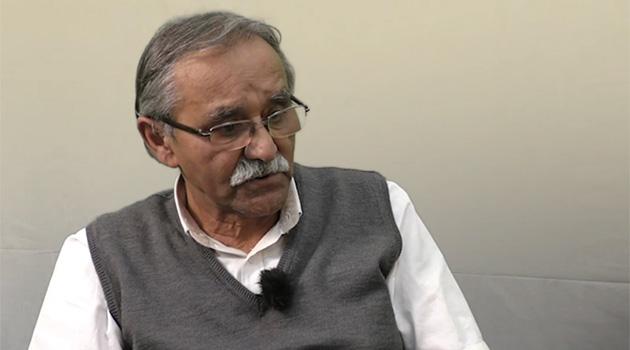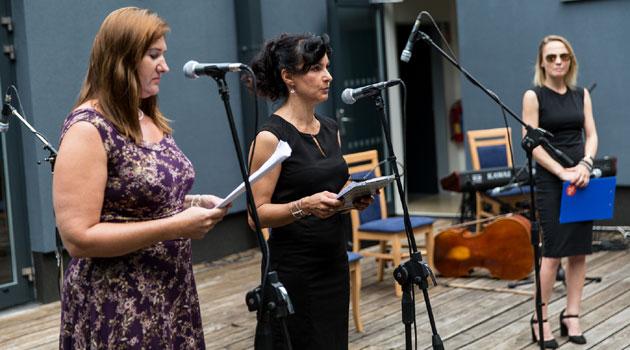Czech Institute for the Study of Totalitarian Regimes honors Romani activist's work to remove pig farm from Holocaust remembrance site

The Institute for the Study of Totalitarian Regimes (Ústav pro studium totalitních režimů – ÚSTR) has given awards to four figures from abroad and from the Czech Republic who have contributed to historical knowledge or who have stood up to undemocratic regimes. One recipient was Čeněk Růžička, chair of the Committee for the Redress of the Romani Holocaust (Výbor pro odškodnění romského holocaustu – VPORH), who was honored for his contribution to reflecting on modern history and for fighting to make the former grounds of the wartime concentration camp for Romani prisoners at Lety u Písku a more dignified remembrance site by successfully achieving the removal of the industrial pig farm built there during communism.
The award ceremony was held yesterday in Prague’s Valdštejn Palace. Růžička was born in Liberec, Czechoslovakia in 1946.
He is a member of the indigenous Czech Roma group who lived on the territory of Bohemia prior to the Second World War. His parents met just after the war, during which all of their family members had been killed.
Růžička trained to be a stonecutter in Lipnice nad Sázavou and made a living for many years working with sculpture and stones. After the Velvet Revolution of 1989 he was an antique dealer for almost a decade until, in 1997, the journalist Markus Pape confronted him with the history of the concentration camp for Romani prisoners at Lety u Písku and the fact that his own family had suffered there.
At that moment, Růžička became a tireless fighter advocating for the remembrance site at Lety u Písku to be improved by removing the industrial pig farm, the smell of which greatly interfered with remembrance. In 2017 he was given the Alice Garrigue Masaryk human rights award by the Ambassador of the United States of American, Stephen King, for his efforts.
In addition to Růžička, ÚSTR awarded the Russian activist and journalist Vladimir Kara-Murza, a longtime critique of the regime of Vladimir Putin. Kara-Murza was a colleague and friend of the murdered politician Boris Nemtsov and has long been been involved in the liberal opposition in Russia.
“In the category of taking a brave civic stance during the Nazi occupation and the subsequent communist dictatorship, we will be honoring Miloslava Števichová, a Charter 77 signatory who was forced by the state security forces to emigrate as part of ‘Operation Sanitation’ (Asanace), as well as former political prisoner František Wiendl, who actively stood up to both the Nazis and the communist regime and spent 10 years behind bars for transporting refugees across the border,” ÚSTR spokesperson Darja Čablová told the Czech News Agency prior to the ceremony. “In addition, special thanks from the director of ÚSTR for spreading spirituality and the values of democracy and freedom will be given to Richard Čemus, a priest who aided Czech exiles and contributed to Vatican Radio broadcasts.”
